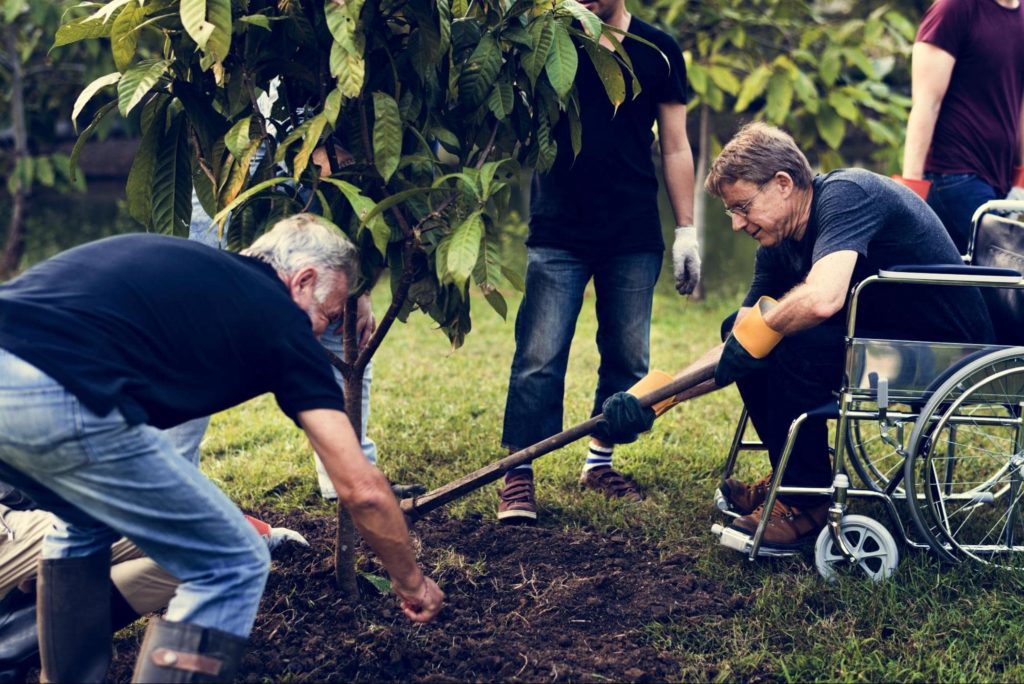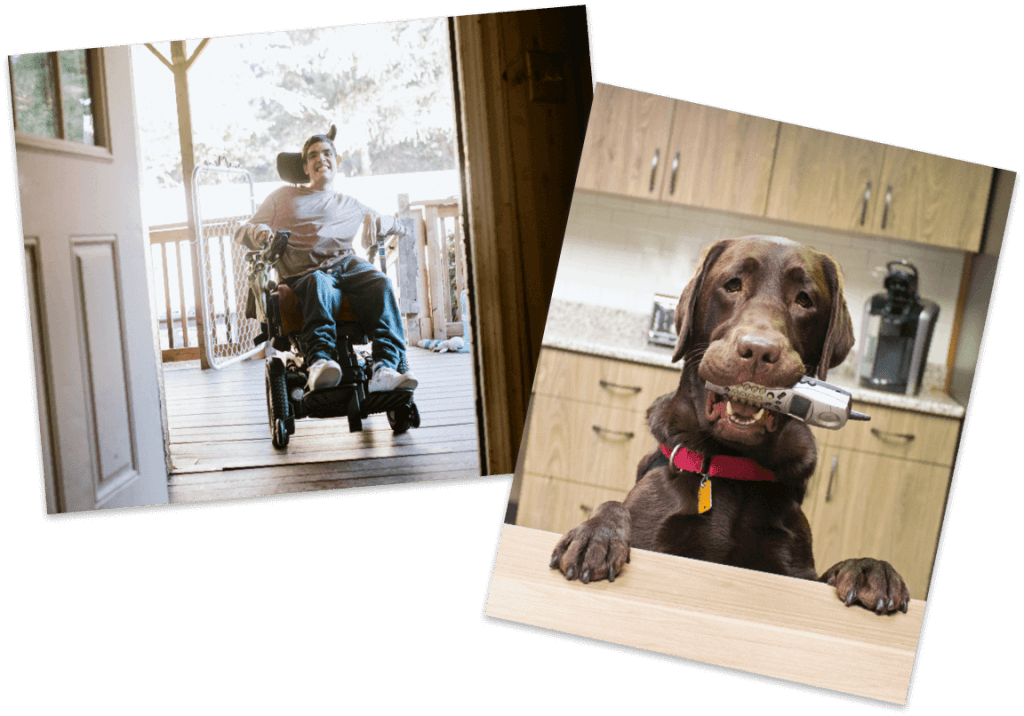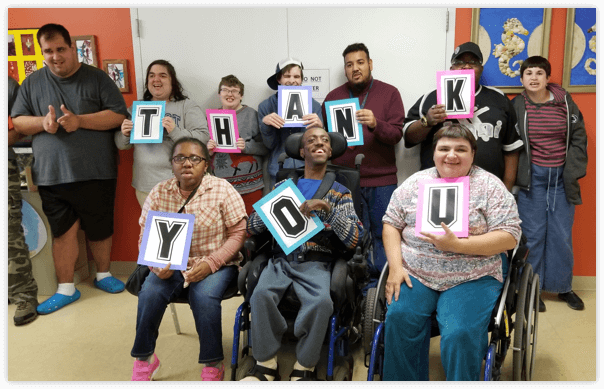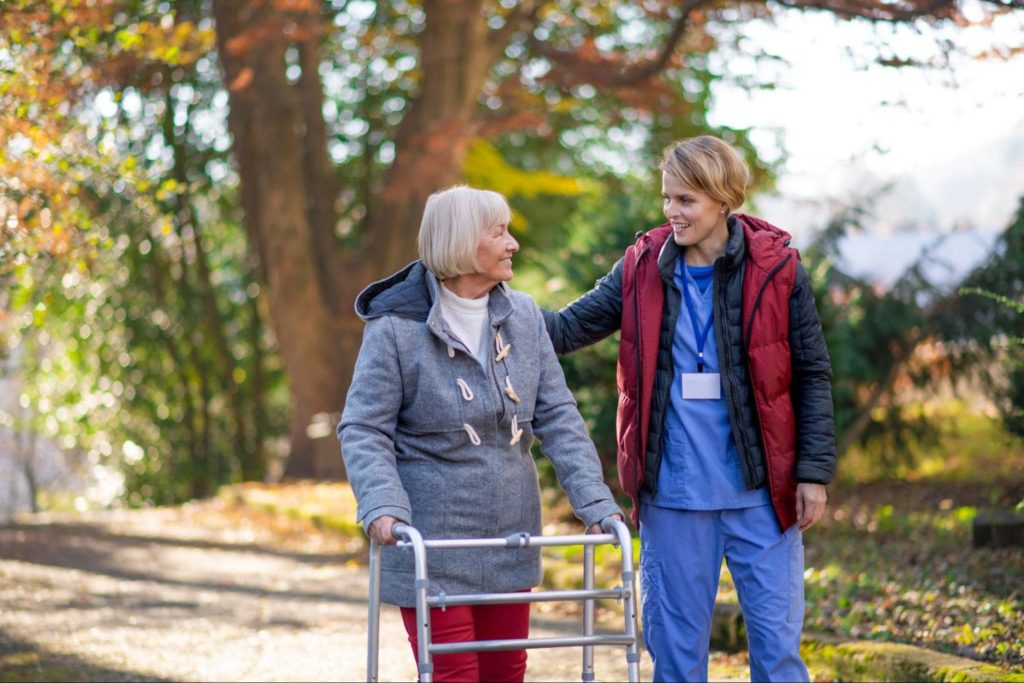Did you know that the current national value of each volunteer hour is $29.95? When you make the decision to start volunteering, you are making the decision to add value to your life and those in your community.
In this blog, we will highlight the benefits of volunteering to help people with disabilities, questions to ask yourself before volunteering, and opportunities to go beyond volunteering with Independent Living Services.

Why Volunteer
Your motives to volunteer may be to help those around you, connect with your community, and bring fulfillment into your life. Volunteering provides benefits to others but the volunteers themselves also tend to see improvements in their physical and mental health. Below are 6 benefits to volunteering that will help you and others live a happier and healthier life.
- Make a Difference: Choosing to volunteer with an organization will create a wave of gratitude and make a difference in countless lives. It will help give you a sense of purpose and accomplishment. You’ll help change lives in more ways than you can imagine.
- Feel More Connected to Others: Volunteers that regularly interact with the same people will build a solid support system and experience decreased loneliness in the group. Especially for people with disabilities, these social interactions will help decrease anxieties and build practical life skills.
- Improve Experiences: Volunteering to help young adults with disabilities or kids with disabilities could be a transformative experience for them. You may consider volunteering in a school or sports program to help brighten students’ futures.
- Develop a Better Community: Boosting community morale through volunteering can help others feel more included and valued. When you volunteer to help people with disabilities you are advocating for a more diverse and inclusive society.
- Decrease Societal Stigmas: Societal stigmas often cause significant distress to people with disabilities. As a volunteer, you’ll reduce the social stigma and allow people with disabilities to feel more comfortable in society.
- Increase Everyone’s Mental Health: Connecting and supporting a volunteer organization will not only increase your mental health but also the mental health of others. Volunteering is known to help fight depression, stress, anger, and anxiety.

UDS Can Help You Live A Fuller Life With Our Comprehensive Services:
Planning & Support – Our dedicated planning & support teams help manage the care and services you need.
Personal Care & Independence – We’ve helped people with disabilities live more independently in their own homes since 1965.
Enrichment & Life Skills – Our variety of programs is dedicated to building skills for living well with a disability.
Volunteering with People with Disabilities
We’ve talked about how volunteering can make a difference in your own life and in those you are helping. Now we will go into more detail on how to volunteer with people with disabilities and a few things to keep in mind.
People with physical, intellectual, and sensory disabilities may be more vulnerable and hesitant with you at first. Still, with patience, empathy, and care you will be able to make a difference in their lives. Throughout the process of volunteering, you may be able to teach and counsel others and help them feel more confident in social situations.
Volunteering with people with disabilities helps create a more inclusive community and break down common barriers. Here are 3 barriers that are reduced when you volunteer with people with disabilities:
- Communication: Written and verbal conversations may be inaccessible to others, causing a communication barrier between people with disabilities and those without disabilities. Volunteering with organizations like Best Buddies, allows you to communicate in ways that are accessible to each individual.
- Social: According to the CDC, kids with disabilities are four times more likely to experience violence in comparison to kids without disabilities. Volunteering to help young adults with disabilities can support them in becoming more comfortable in “mainstream society” and build social confidence.
- Attitudinal: These types of barriers include stereotyping, discrimination, and prejudice. Becoming more involved in the disability community allows you to change perspectives on disabilities and be more inclusive.
Finding the Right Volunteer Organization
Find a volunteer opportunity that matches your interest, goals, and personality. Before jumping into the first volunteer opportunity you see, ask yourself some questions to find the right one.
- What causes are you interested in? More than likely, if you’re reading this blog, it means you are looking for how to volunteer with people with disabilities. You can take this one step further and ask yourself, what volunteer activities would interest me? Maybe you’re looking for more hands-on experience and want to be a coach for a sports team or perhaps you are interested in helping in an office setting where you are filing paperwork and planning fundraising events.
- What is your purpose for volunteering? Are you looking for something to help advance your career or something to help fulfill your time outside of work? If you want to volunteer to help people with disabilities so you can advance in your career, find an opportunity that allows you to improve the skills you need for your career. You may want to volunteer to help you forget about work and feel more connected to your community and in that case, find an opportunity that is more of personal interest.
- How much time are you able to dedicate to volunteering? Research has shown that volunteering for about 100 hours a year will provide you with the most benefits. This filters out to be 2 to 3 hours a week. As you are looking at volunteer opportunities, make sure you are ready to commit to whatever the timeline is.
- What skills can you bring to your volunteer work? No matter what the reasoning is behind your choice to volunteer, find an organization where you can add value. Maybe you are looking to volunteer to cultivate new skills or better skills you already possess.

Opportunities to Volunteer
Now that you have an idea of how to volunteer with people with disabilities, we have provided some programs with volunteer opportunities. At United Disabilities Service there are many volunteering avenues to choose from.
Adult Enrichment
Adult Enrichment is a program that focuses on community integration, independent living skills, and socialization for people with disabilities. Volunteers are able to be guest speakers to the class, present a group activity, or assist during special events.
Football and Cheerleading League
This league was created for people with disabilities aged 8 to 21 to get some exercise and connect with their teammates. Volunteers can get involved by becoming a challenger buddy where you will help players on the field and motivate them to do their best.
Service Dogs
If you are looking for some furry friends to be around, our service dog program is always looking for volunteers. You have the option to train puppies for a couple of months, socialize with the puppies in our kennel, or assist us in planning our special events.

Going Beyond Volunteering
The benefits of volunteering go hand in hand with the benefits of becoming a caregiver. Independent Living Service is hiring people with a passion for helping others and connecting with their community.
As a caregiver, you will have the opportunity to work with people recovering from an illness or injury, people who are aging, and individuals with physical disabilities. We will provide training for you to obtain all the necessary skills you need to succeed as a caregiver so all you need is the compassion to start your career.